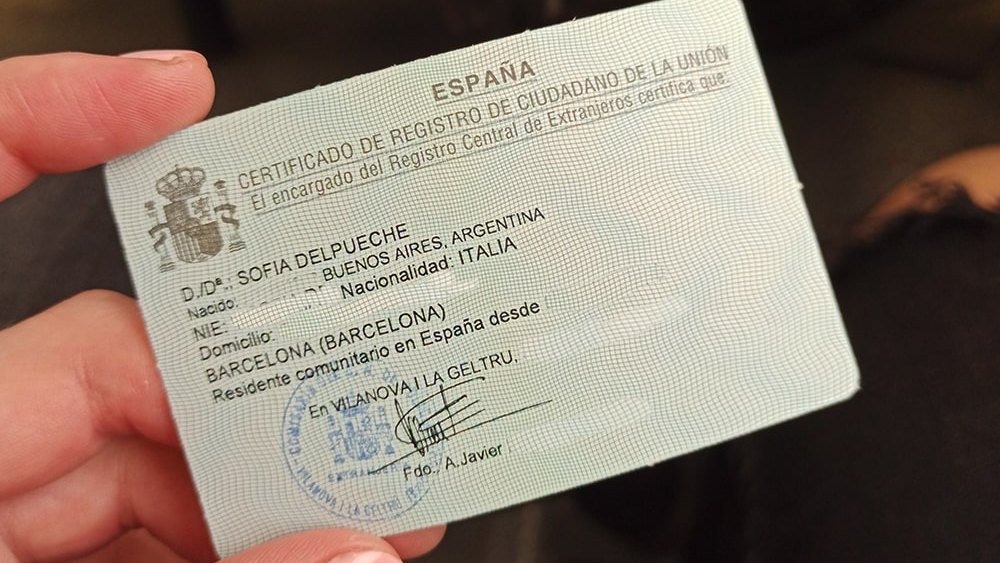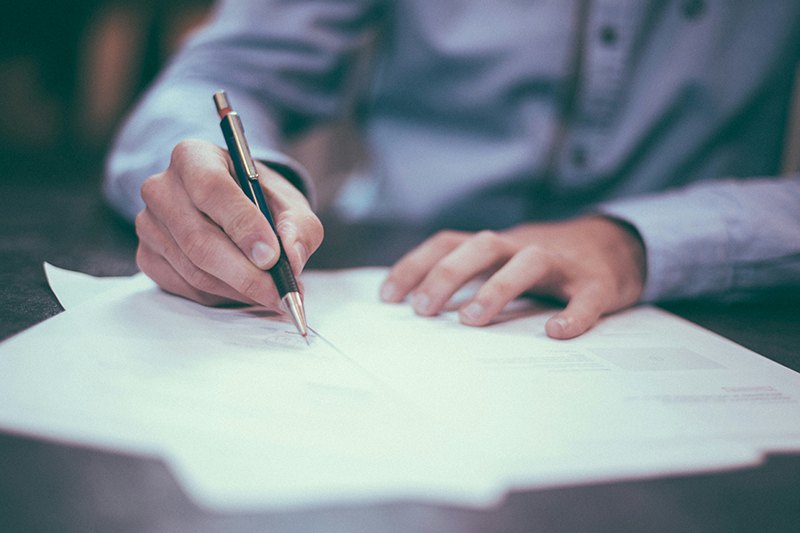
NIE Spanish Number
Alexey | · 14 min. read
If you are planning to live, work, invest, or engage in financial transactions in Spain, securing an NIE Spanish number is one of the most critical steps you need to take. The Número de Identificación de Extranjero (NIE) is a unique identification number assigned to foreign nationals, serving as the gateway to accessing essential services and legal rights in Spain. Whether you plan to purchase property in Marbella, start a business, or simply open a bank account, the NIE number is essential for all legal and financial activities.
This guide will provide you with everything you need to know about obtaining an NIE Spanish number, with a focus on Marbella. From understanding its significance to walking you through the application process, we’ll cover all the necessary details so you can confidently navigate the system.
- Table of contents
- What is an NIE Spanish Number?
- How to Obtain an NIE Spanish Number: Step-by-Step Guide
- Applying Through a Spanish Consulate (if Abroad)
- Appointing a Legal Representative to Obtain Your NIE
- Common Challenges and Solutions
- Final Thoughts: Successfully Obtaining an NIE Spanish Number
What is an NIE Spanish Number?
The NIE Spanish number is a unique identification number issued by the Spanish authorities to non-Spanish nationals. It functions similarly to a tax identification number or national identification number in other countries, ensuring that foreigners have an official presence in the Spanish system.
The NIE number is a 9-character alphanumeric code that begins and ends with a letter and has seven digits in the middle (e.g., A-1234567-Z). This unique number is assigned to each foreign national only once and remains their personal identifier for life - regardless of whether they leave the country and return later. The NIE number does not change, even if the individual’s residency status changes.
What is the Purpose of the NIE Spanish Number?
The NIE number serves as your legal identifier in Spain and is required for a wide array of activities. Below are some of the core functions and scenarios where an NIE is necessary:
- Official Documentation and Contracts: Whether you're purchasing a home, signing a rental agreement, or finalizing a business contract, you will need an NIE to make these agreements legally binding. The NIE number ensures that the Spanish authorities can track legal and financial activities involving foreign nationals, thus making all contracts and official transactions traceable.
- Tax and Social Security Obligations: The NIE is required for paying taxes, whether you are an employee, self-employed, or a business owner. It links you to Spain’s tax system (Agencia Tributaria) and ensures you fulfill your tax obligations, such as property taxes, income tax, and VAT. The NIE is also crucial for registering with Social Security (Seguridad Social), which is mandatory for employees, business owners, and freelancers in Spain. Social Security registration is tied to accessing healthcare services, unemployment benefits, and pensions.
- Opening a Bank Account: Most financial institutions in Spain require an NIE before allowing foreigners to open a bank account. This includes both resident and non-resident accounts. Having a Spanish bank account is essential for conducting day-to-day activities such as paying bills, managing mortgage payments, and receiving salaries.
- Buying or Selling Property: Whether you're purchasing a home, selling property, or engaging in any real estate transactions, an NIE is a legal requirement. The NIE is tied to property ownership, and without it, foreigners cannot legally buy, sell, or register property in Spain.
- Business Registration: Foreigners planning to start a business in Spain must have an NIE to register their company. The NIE will be linked to all business tax filings, invoices, and official business-related paperwork. This also includes registering for VAT, filing company taxes, and entering commercial contracts.
- Working and Employment Contracts: For those planning to work in Spain, the NIE number is mandatory for signing employment contracts. Employers require the NIE to ensure that their foreign employees are legally documented and can pay taxes and social security contributions. Freelancers and self-employed workers also need the NIE to operate legally.
- Education and Other Registrations: If you're enrolling in a university, registering for courses, or signing up for language schools, you may also need an NIE. Educational institutions often request it as part of their administrative procedures.
- Other Services and Utilities: The NIE is also required for setting up essential services, such as electricity, water, and internet connections. Additionally, it is often required when signing up for mobile phone contracts and obtaining insurance policies, including health, home, or car insurance.
Who Issues the NIE Spanish Number?
The NIE Spanish number is issued by the National Police (Policía Nacional) and the Spanish Ministry of the Interior. You can apply and get an NIE number either in Spain or through a Spanish consulate abroad. The application process involves submitting an official request, along with supporting documents that justify the need for an NIE. For individuals residing in Spain, the NIE is typically issued at a local Oficina de Extranjeros or Foreigners' Office (www.interior.gob.es) or at designated police stations, especially in major cities and regions with high concentrations of foreign residents, such as Marbella.
Is the NIE the Same as Spanish Residency?
While the NIE is a critical identification number for foreigners, it is not the same as residency. Obtaining an NIE does not automatically grant you the right to live in Spain indefinitely. The NIE is purely an identification number for tax and legal purposes, and it is often the first step for those who eventually plan to apply for residency.
For individuals planning long-term stays, the NIE will be necessary to initiate the residency application process, but it does not equate to a residence permit (permiso de residencia). Residency applications involve additional paperwork and requirements beyond simply obtaining an NIE.

How to Obtain an NIE Spanish Number: Step-by-Step Guide
Now that the importance of the Número de Identificación de Extranjero (NIE) is established, let's delve into the procedural steps for acquiring one. The following is a detailed guide to help you navigate the process of obtaining your NIE number, particularly if you are in Marbella.
Step 1: Understanding and Gathering the Documents and Other Requirements
Before initiating your application, familiarize yourself with the necessary prerequisites. The documents required for obtaining one include:
- Valid passport: You’ll need a photocopy of your passport (including the information page) and your original passport. Ensure your passport is valid and has clear, legible information. Provide both the original and a photocopy.
- Application Form (EX-15): The main application form for the NIE number. It must be completed and signed. Make sure it is filled out correctly, and print multiple copies if needed.
- Proof of reason for the application: You need to submit proof of why you need an NIE. This is a supporting document that explains why you are applying for one such as a property purchase agreement, a job offer, or a business registration.
- Payment of application fee: You must pay the application fee using form 790-012, which can be accessed through the Spanish police website. This receipt confirms the payment of the applicable fee for processing your NIE application.
Step 2: Booking an Appointment in Marbella
Once your documents are ready, the next step is to make an appointment at the appropriate local authority in Marbella. Appointments are usually made through the Spanish government’s official website, sede.administracionespublicas.gob.es. Here's how to proceed:
- Select your province: Choose “Málaga” as the province for Marbella.
- Select the procedure type: Look for options related to NIE applications, such as "Certificados UE" or similar.
- Choose a date and time: Pick a convenient time and date for your appointment.
- Submit the request: Confirm your appointment and print the confirmation slip, which you will need to present during your visit.
Step 3: Attending the Appointment
Once you’ve successfully scheduled your appointment for your NIE Spanish number, attending the appointment in person is a crucial step. It is important to be well-prepared to ensure the process runs smoothly. Here’s a breakdown of what to expect and how to prepare for the appointment day.
On the day of your appointment, it is essential to bring all the required documents. Spanish bureaucratic processes are notoriously strict, so ensure you have all the necessary documents in order:
- A completed and signed EX-15 form (here’s a guide on how to fill up the form)
- Original passport and a photocopy
- Supporting documents (e.g., job contract, property agreement)
- Proof of payment for the NIE application fee
What to Expect During and After the Appointment
Once you arrive at the Oficina de Extranjeros (Foreigner's Office) or the local police station, it’s important to remain organized and patient. Here’s what you can typically expect:
- Check-in and Waiting Time: Upon arrival, you will check in at the reception or with the appointed staff. Ensure you arrive at least 10–15 minutes before your scheduled appointment to allow for any unforeseen delays. Be prepared for waiting times, as Spanish government offices can be busy, especially in cities like Marbella where there are high numbers of foreign residents. Even with an appointment, there may be a queue.
- Document Verification: Once your turn comes, a government official will review all your submitted documents. They will check that your EX-15 form is correctly filled out and verify your identity through your passport. If you’ve provided supporting documents, the officer may ask questions to confirm the legitimacy of your request. For example, they might request more details about the job offer, the property you're purchasing, or the purpose of your financial transactions.
- Biometrics (if applicable): In some cases, especially if you are applying for residency alongside your NIE, you may be required to provide biometric data, such as fingerprints and photographs. While not always required for NIE applications, be prepared in case it is requested.
- Questions or Clarifications: The government official may ask clarifying questions about your application, such as why you need the NIE or what activities you plan to engage in. Be ready to explain your situation clearly and provide any additional information if requested. This is especially common if you are applying for reasons such as employment, property purchase, or business registration.
After the Appointment
Once your documents are verified, there are two potential outcomes:
- Immediate Issuance of the NIE: In some cases, especially if all your documents are in order and the office is not experiencing heavy demand, you may be issued your NIE number on the spot. If this happens, the official will provide you with a document that contains your NIE Spanish number. This is typically a printed certificate with your name, NIE number, and the date of issuance.
- Waiting for Your NIE Number: In many cases, especially during busy periods, the NIE number may not be issued immediately. Instead, you will receive a notification indicating that the NIE will be mailed to you or that you will need to return to the office to collect it. The waiting period can vary depending on the office’s workload. It may take several days or even weeks. During this time, it’s important to keep the receipt and any documentation you’ve received during the appointment, as it may be required for future follow-up.
Tips for a Smooth Appointment Experience
- Arrive Early: Arriving early not only ensures that you won't miss your appointment but also helps you avoid unexpected delays such as long queues, parking issues, or additional security checks at the office.
- Be Patient: Spanish bureaucracy can be slow, especially in popular expat destinations like Marbella. Patience is key when dealing with government offices. Even if you’ve provided all the correct documentation, waiting periods can be long, particularly during peak times such as the summer months or holiday seasons.
- Dress Professionally: While there’s no strict dress code, presenting yourself professionally can leave a positive impression and may help ensure your appointment goes smoothly.
- Bring Extra Copies: Bring extra photocopies of your documents. Sometimes the office may require additional copies, and it’s better to have them on hand rather than be sent away to make more.
- Language Considerations: Not all officials will speak English fluently, so it may be helpful to bring a Spanish-speaking friend, translator, or legal representative with you if you’re not comfortable with Spanish. This will make communication easier and prevent misunderstandings.
Follow-Up After the Appointment
If your NIE number is not issued immediately, it’s important to keep track of the next steps. If you are asked to return to the office to collect your NIE, ensure you remember the date and time of the follow-up appointment.
If your NIE is being mailed to you, make sure you regularly check your mail, as missing the notification could lead to further delays. In some cases, if there’s a problem with your application, you may be asked to submit additional documents or make corrections.
Applying Through a Spanish Consulate (if Abroad)
If you are currently not in Spain, you can still apply for Número de Identificación de Extranjero (NIE) through a Spanish consulate in your home country. This option can be convenient for those who wish to have their NIE ready before arriving in Spain, although the process may take longer than applying in Spain.
Applying through a consulate:
- Locate the nearest Spanish consulate: Use online resources to find the nearest consulate.
- Make an appointment: Schedule a date and time for your NIE application.
- Prepare the necessary documents: Similar to the process in Spain, gather your passport, application form (EX-15), proof of reason, and fee payment.
- Submit the application: During your appointment, present all required documents and await further instructions from the consulate.

Appointing a Legal Representative to Obtain Your NIE
If the process of applying for an NIE Spanish number seems overwhelming, you have the option of appointing a legal representative to handle the application on your behalf. This can be a lawyer or a gestor who is familiar with the NIE application process.
The legal representative will require:
- Power of attorney: A notarized letter granting the representative the authority to act on your behalf.
- Your documents: The same documents you would submit if you were applying in person.
It is crucial to ensure that the individual or firm you select possesses substantial experience with NIE Spanish number applications and maintains a good reputation. Legal representatives can be sourced through platforms such as Anglo Law. Maintain consistent communication with your legal representative to monitor the progress of your application and address any potential queries.
Common Challenges and Solutions
While the process of applying for an NIE Spanish number may seem straightforward, certain challenges may arise. Here are some common issues applicants face and tips to overcome them:
- Scheduling Delays: During peak tourist or relocation seasons, appointment slots may be limited. It’s advisable to book early and be flexible with dates.
- Document Errors: Ensure that all forms are completed accurately, and double-check the information before submission to avoid delays.
- Complex Requirements: If the paperwork seems complicated, consider hiring a legal professional to assist with the application.
- Payment Confusion: Some applicants face confusion with payment forms. Use the correct form (790-012), and pay the fee at a local bank before your appointment.
Final Thoughts: Successfully Obtaining an NIE Spanish Number
Acquiring a Número de Identificación de Extranjero (NIE) is a vital step for anyone who plans to live, work, or invest in Spain. While the process may seem daunting at first, being well-prepared and understanding the steps involved will significantly reduce stress and ensure a smoother experience. Whether you choose to get or apply in person in Marbella, through a consulate abroad, or by appointing a legal representative, the NIE Spanish number will open the door to countless opportunities within Spain.
By following this detailed guide and staying informed, you will be able to navigate the procedural intricacies with ease and confidence. Now, you're one step closer to enjoying life and business in beautiful Marbella!